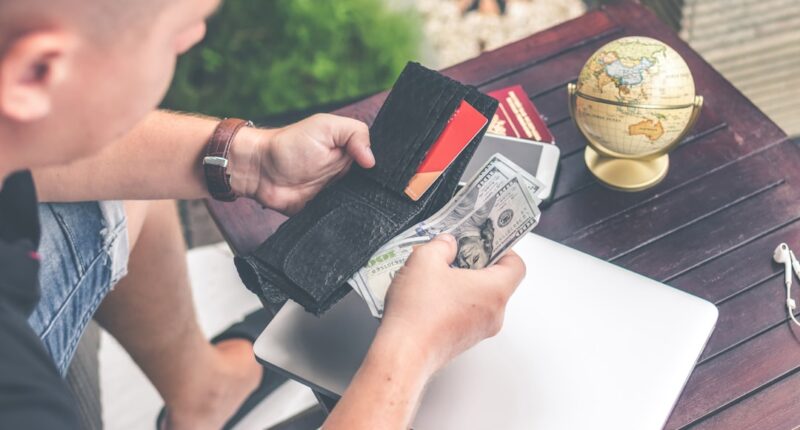Non-fungible tokens (NFTs) are unique digital assets stored on blockchain technology, which is a decentralized and secure digital ledger. Unlike fungible cryptocurrencies such as Bitcoin or Ethereum, NFTs cannot be exchanged on a one-to-one basis due to their individual uniqueness. NFTs can represent various digital assets, including artwork, videos, music, and virtual real estate.
Each NFT contains metadata defining its uniqueness and ownership, facilitating verification of authenticity and provenance. This technology has created new opportunities for creators to monetize digital works and for collectors to acquire rare digital collectibles. The blockchain records ownership and transfer of NFTs, providing a transparent and tamper-proof record.
This feature has contributed to the growing interest in NFTs as a form of digital investment and collectibles. The NFT market has experienced significant growth, attracting attention from artists, investors, and technology enthusiasts alike.
Key Takeaways
- NFTs are unique digital assets that are stored on a blockchain and represent ownership of a specific item or piece of content.
- When researching the NFT market, look for digital collectibles with strong provenance, scarcity, and demand to identify valuable assets.
- NFT investing comes with high risks, including market volatility, security concerns, and potential for fraud, but also offers potential for high rewards.
- To buy an NFT, you’ll need to set up a digital wallet, fund it with cryptocurrency, and use a marketplace or platform to make a purchase.
- Crypto jobs in the NFT ecosystem offer opportunities in areas such as blockchain development, digital art curation, and NFT marketing, but also come with challenges such as regulatory uncertainty and market saturation.
- Careers in the digital collectibles industry include roles in NFT creation, curation, sales, and marketing, with opportunities for growth and innovation.
- The impact of BTC and cryptocurrency on the NFT market includes trends such as increased adoption of NFTs, integration of NFTs with DeFi, and predictions for continued growth and evolution in the digital collectibles space.
Researching the NFT Market: Tips for Identifying Valuable Digital Collectibles
Creator Reputation and Track Record
The reputation and track record of the creator play a significant role in determining the value of an NFT. Established artists and creators with a strong following are more likely to produce NFTs that hold long-term value.
Scarcity and Uniqueness
The scarcity and uniqueness of the digital asset are also crucial factors in determining its value. Limited edition NFTs or those with unique attributes are often more sought after by collectors, increasing their value.
Market Demand and Blockchain Technology
Researching current trends and market demand can help investors identify valuable NFTs that are likely to appreciate in value over time. Additionally, it’s essential to consider the underlying blockchain technology and the platform where the NFT is being sold. Different blockchains and NFT marketplaces have varying levels of security, transaction fees, and user base, which can impact the value and liquidity of the digital collectible.
Navigating the High-Risk World of NFT Investing: Risks and Rewards

Investing in NFTs can be highly rewarding, but it also comes with its fair share of risks. One of the main risks associated with NFT investing is the volatility of the market. The value of NFTs can fluctuate dramatically based on market trends, demand, and the reputation of the creator.
This makes it essential for investors to carefully research and assess the potential risks before making any investment decisions. Another risk to consider is the potential for fraud and counterfeit NFTs. Due to the digital nature of NFTs, there is a risk of unauthorized duplication or theft of digital assets.
Investors should be cautious when purchasing NFTs from unverified sources or platforms with poor security measures. Additionally, regulatory uncertainty and legal issues surrounding NFT ownership and copyright can pose risks for investors in this emerging market. Despite these risks, investing in NFTs also presents significant rewards for early adopters and savvy investors.
The potential for high returns on investment, especially for rare and sought-after digital collectibles, has attracted a growing number of investors to the NFT market. As the market continues to mature, there is also potential for increased liquidity and mainstream adoption of NFTs as a legitimate asset class.
How to Buy an NFT: Step-by-Step Guide to Making a Purchase
Buying an NFT involves several steps, starting with choosing a reputable NFT marketplace or platform. Once you have selected a platform, you will need to create an account and connect a digital wallet that supports the blockchain where the NFT is being sold. Popular digital wallets for NFT transactions include MetaMask, Trust Wallet, and Coinbase Wallet.
After setting up your wallet, you can browse through the available NFTs on the marketplace and select the digital collectible you wish to purchase. It’s important to carefully review the details and metadata of the NFT, including its ownership history, attributes, and any associated smart contracts. Once you have found an NFT you want to buy, you can place a bid or make a direct purchase using cryptocurrency.
When making a purchase, it’s crucial to consider transaction fees, gas fees (for Ethereum-based NFTs), and any additional costs associated with the transaction. After completing the purchase, the NFT will be transferred to your digital wallet, and you will become the official owner of the digital collectible. It’s important to keep records of your NFT purchases for tax and ownership verification purposes.
The Role of Crypto Jobs in the NFT Ecosystem: Opportunities and Challenges
The rise of NFTs has created new opportunities for crypto jobs within the digital collectibles ecosystem. From blockchain developers and smart contract engineers to digital artists and marketing specialists, there is a growing demand for skilled professionals with expertise in cryptocurrency and blockchain technology. Crypto jobs in the NFT space offer opportunities for remote work, flexible hours, and potentially high earning potential.
However, there are also challenges associated with crypto jobs in the NFT ecosystem. The fast-paced and rapidly evolving nature of the industry means that professionals need to stay updated with the latest trends and technologies to remain competitive in the job market. Additionally, regulatory uncertainty and legal challenges surrounding NFT ownership and copyright can create complexities for professionals working in this space.
NFT Jobs: Careers in the Digital Collectibles Industry

Key Roles in the NFT Industry
Some of the most in-demand NFT jobs include blockchain developers, who design and maintain the underlying infrastructure for NFT transactions; digital artists, who create unique and valuable digital assets for sale as NFTs; marketing specialists, who promote and sell NFTs to collectors and investors; and legal experts, who navigate the complex legal landscape surrounding NFT ownership and copyright.
Emerging Opportunities in the NFT Space
In addition to these roles, there are also opportunities for entrepreneurs and business owners to create their own NFT marketplaces or platforms, as well as consultants who provide expertise on NFT investments and market trends.
The Future of NFT Professionals
As the NFT market continues to grow and evolve, there will be an increasing demand for professionals with diverse skills and expertise in cryptocurrency, blockchain technology, digital art, marketing, and legal compliance.
The Impact of BTC and Cryptocurrency on the NFT Market: Trends and Predictions
The relationship between Bitcoin (BTC), cryptocurrency, and the NFT market is closely intertwined, with trends in one often influencing the other. The growing acceptance of cryptocurrency as a legitimate form of payment has contributed to the increasing popularity of NFTs as digital investments. As more investors embrace cryptocurrency as a store of value, they are also exploring opportunities to diversify their portfolios with NFTs.
Looking ahead, it’s likely that we will continue to see greater integration between BTC, cryptocurrency, and the NFT market. This could include more seamless payment options for purchasing NFTs using cryptocurrency, as well as increased collaboration between blockchain platforms and NFT marketplaces. Additionally, as regulatory frameworks around cryptocurrency become more defined, we may see increased institutional adoption of both cryptocurrency and NFTs as alternative assets.
In conclusion, understanding NFTs involves grasping their unique nature as non-fungible tokens stored on a blockchain. Researching valuable digital collectibles involves considering factors such as creator reputation, scarcity, uniqueness, demand within the market, underlying blockchain technology, and platform security. While navigating high-risk investing involves volatility, fraud risks, regulatory uncertainty; it also presents rewards such as high returns on investment and potential mainstream adoption.
Buying an NFT requires choosing a reputable marketplace or platform, creating an account, connecting a digital wallet that supports the blockchain where the NFT is being sold, browsing available NFTs, reviewing details before making a purchase using cryptocurrency. The role of crypto jobs in the NFT ecosystem offers opportunities such as remote work flexibility but also presents challenges such as staying updated with industry trends and technologies. Careers in the digital collectibles industry include roles such as blockchain developers, digital artists, marketing specialists, legal experts; entrepreneurs; business owners; consultants; all requiring diverse skills in cryptocurrency; blockchain technology; digital art; marketing; legal compliance.
The impact of BTC; cryptocurrency on the NFT market involves trends such as growing acceptance of cryptocurrency contributing to increasing popularity of NFTs; predictions such as greater integration between BTC; cryptocurrency; increased institutional adoption of both cryptocurrency; NFTs as alternative assets.
FAQs
What is an NFT?
An NFT, or non-fungible token, is a digital asset that represents ownership or proof of authenticity of a unique item or piece of content, such as artwork, music, videos, or other digital collectibles.
How do I buy an NFT?
To buy an NFT, you will need to use a cryptocurrency wallet and an NFT marketplace. You can purchase NFTs using cryptocurrency such as Ethereum, and each NFT will have its own unique address for you to send the payment to.
What are the risks of buying NFTs?
The high-risk nature of buying NFTs includes the potential for scams, market volatility, and the lack of regulation in the NFT space. Additionally, there is the risk of the value of the NFT decreasing over time.
How do I ensure the authenticity of an NFT?
To ensure the authenticity of an NFT, it is important to research the creator, verify the ownership history on the blockchain, and use reputable NFT marketplaces and platforms.
Can I sell my NFT after purchasing it?
Yes, you can sell your NFT after purchasing it. NFTs are designed to be bought, sold, and traded on various NFT marketplaces and platforms. However, there may be fees associated with selling your NFT.





